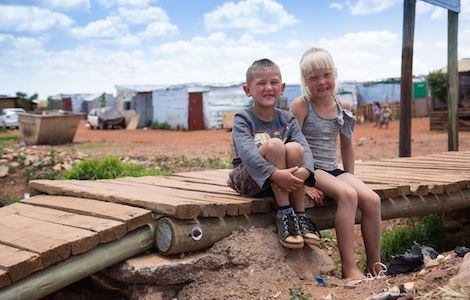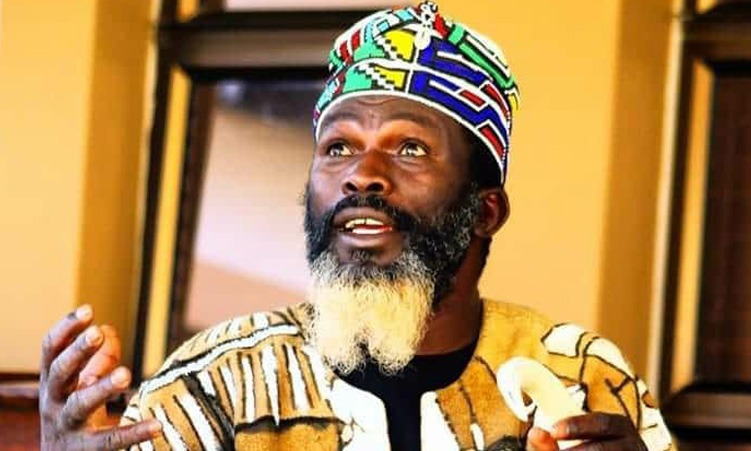• OLLIE MCATEER THESE white South African families are so poor they are forced to live in slums similar to the worst days of apartheid.
At this ‘white squatter camp’, hundreds of families have no power, barely any food or water and must live in poor shelter.
Townships like this, which can be found all across the country, are a direct result of white poverty following apartheid’s fall – which came to an end 22 years ago.
Under the old white supremacist regime, which ended in 1994, the Afrikaners were almost guaranteed employment and housing.
But now, many Afrikaners live in increasingly concerning conditions because of the dire economic circumstances in the post-apartheid era.
Throughout South Africa, there is a lack of opportunity for Afrikaners, which has meant many have found themselves homeless and poor.
The exact number is disputed by many, but it is believed up to 400 000 Afrikaners now live in white squatter camps throughout the country.
Even more, almost 450 000, live in poverty and are forced to survive on less than R630 a month.
Munsieville township, one of 80 across South Africa, is built on the site of an old refuse dump and is home to around three hundred Afrikaners – of which a quarter are children.
At the site, which is illegal, there is no electricity, no running water apart from a couple of standpipes, no secure structures and food is hard to come by.
Residents at Munsieville are able to evade the law by building flimsy shelters with no foundations, as the government intervenes when permanent structures are built.
Homes range from wooden sheds to metal shacks built from boards of iron – structures typically have bare earth floors and frequent flooding washes away the topsoil and leaves decades-old waste exposed.
Because residents do not have electricity or water bills, it makes it impossible to claim for welfare from the authorities.
Hospitals turn down residents in need of care from the camp and they often get rejected by potential employers at job interviews.
Henrik (49), says his ‘life is over’ now that he lives at the camp.
He said: “My life is over. I’m 49 years old and I’m too old to get a job. I apply and as soon as they see my age, they say “sorry, you are too old.
“I do what I can to survive, collecting scrap metal or selling second-hand clothes. But it is barely enough.
“Most kids here are happy. Some of them know the situation they are in. I don’t want to talk big about my kids but if I tell them there isn’t any money they accept it. But it is hard, I just want the best for them.”
Leigh du Preez, who works for the South African Family Relief Project (SAFRP) charity, said those at the camp have little chance of finding a job.
Leigh said: ‘As soon as they read your application and see you are from a white squatter camp, they turn you down.
“It’s very difficult to get a job if employers know you live in one.”
– Metro (UK)
Stay informed with The Namibian – your source for credible journalism. Get in-depth reporting and opinions for
only N$85 a month. Invest in journalism, invest in democracy –
Subscribe Now!






